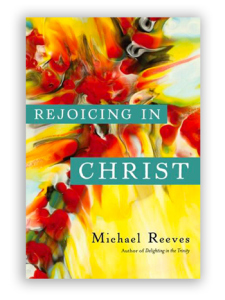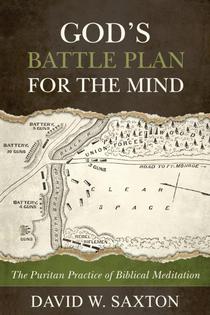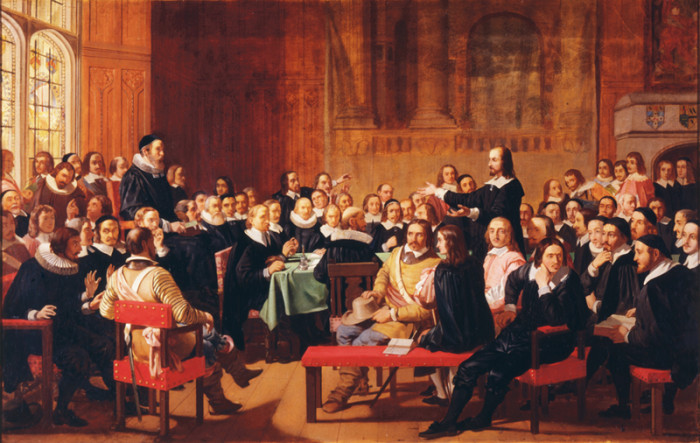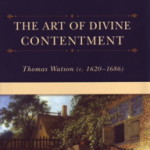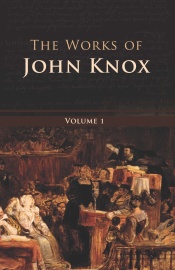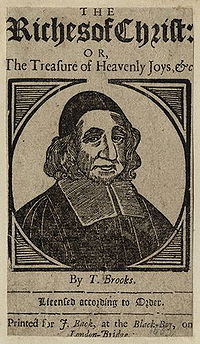 I first read Thomas Brooks’ The Privy Key to Heaven in December 2011. After completing the book I wrote on the bottom of the last page, “One of the most life changing books I’ve read.” I finished the book again yesterday and I made a strikingly similar remark, “No book moves me to private prayer like this one.” Every reading reawakens fervency for the closet and faithfulness to Christ. I can’t recommend it highly enough.
I first read Thomas Brooks’ The Privy Key to Heaven in December 2011. After completing the book I wrote on the bottom of the last page, “One of the most life changing books I’ve read.” I finished the book again yesterday and I made a strikingly similar remark, “No book moves me to private prayer like this one.” Every reading reawakens fervency for the closet and faithfulness to Christ. I can’t recommend it highly enough.
Taking Matthew 6:6 as his text, Brooks’ offers this summary doctrine: That closet or private prayer is an indispensable duty, that Christ himself hath laid upon all that are not willing to lie under the woeful brand of being hypocrites.
In typical Puritan fashion he proceeds to meditate on his main point with a laser focus and a warm heart. The bulk of the book gives twenty arguments for closet prayer—things like “Christ did it,” “Life is the only time for it,” and “Christ is much delighted by it.” My interest in this post, however, are the final “rules” he offers to encourage Christians unto faithfulness and consistency in private prayer.
8 Rules to Apply for Persistent Private Prayer
1) Lament greatly and mourn bitterly over the neglect of this choice duty. He who does not make conscience of mourning over the neglect of this duty, will never make conscience of performing this duty. Oh that your heads were waters, and your eyes a fountain of tears—that you might weep day and night for the great neglect of closet-prayer, Jer 9:1. He who mourns most for the neglect of this duty, will be found most in the practice of this duty.
2) Habituate yourselves, accustom yourselves, to closet-prayer. Make private prayer your constant trade. Frequency begets familiarity, and familiarity confidence. We can go freely and boldly into that friend’s house whom we often visit. What we are habituated to, we do with ease and delight.
3) Keep a diary of all your closet-experiences. Oh, carefully record and book down all your closet mercies! Oh, be often in reading over your closet experiences, and be often in meditating and in pondering upon your closet experiences! There is no way like this, to inflame your love to closet-prayer, and to engage your hearts in this secret trade of private prayer.
4) Be sure that you do not spend so much of your precious time in public duties and ordinances, as that you can spare none for private duties, for secret services. Ah! how many are there that spend so much time in hearing of this man and that, and in running up and down from meeting to meeting, that they have no time to meet with God in their closets. O sirs! your duties are never so amiable and lovely, they are never so sweet and beautiful, as when they are seasonably and orderly performed.
5) Love Christ with a more inflamed love. Oh strengthen your love to Christ, and your love to closet-duties. Lovers love much to be alone, to be in a corner together, Song 7:10-12. Certainly the more any man loves the Lord Jesus, the more he will delight to be with Christ in a corner.
6) Be highly, thoroughly, and fixedly resolved, in the strength of Christ, to keep close to closet-duties, in the face of all difficulties and discouragements which you may meet with (Psa. 44:17-20). A man of no resolution, or of weak resolution, will be won with a nut, and lost with an apple. Satan, and the world, and carnal relations, and your own hearts, will cast in many things to discourage you, and take you off from closet prayer; but be nobly and firmly resolved to keep close to your closets, let the world, the flesh, and the devil, do and say what they can.
Of all the duties of religion, Satan is the most deadly enemy to this duty of secret prayer; partly because secret prayer spoils him in his most secret designs, plots, and contrivances against the soul; and partly because secret prayer is so musical and delightful to God; and partly because secret prayer is of such rare use and advantage to the soul; and partly because it keeps the soul far from pride, vain glory, and worldly applause. Therefore he had rather that a man should pray a thousand times in public in the church, or in the corner of the streets—than that he should pray once in his closet. Therefore you had need to steel your hearts with holy courage and resolution, that whatever suggestions, temptations, oppositions, or objections you may encounter with, that yet you will keep close to closet prayer.
7) Labor for a greater effusion of the Holy Spirit. The greater measure any man has of the Spirit of God, the more that man will delight to be with God in secret.
There are many people who say, they would be more in their closets than they are—but that they meet with many hindrances, many occasions, many diversions, many temptations, many oppositions, many difficulties, many discouragements, which prevent them. Ah, friends! had you a greater measure of the Holy Spirit upon you, none of these things would ever be able to hinder your secret trade heavenward
8) Be frequent in the serious consideration of eternity. Oh see eternity standing at the end of every closet-prayer, and this will make you pray to purpose in your closets. O sirs! every work you do, is a step to a blessed, or to a cursed, eternity. Every motion, every action in this life, is a step toward eternity.
If there be any way or means on earth to bring us upon our knees before God in secret, it is the serious and solemn thoughts of eternity. Oh that the fear of eternity might fall upon all your souls! Oh that you would all seriously consider, that after a short time is expired, you must all enter upon an eternal estate!

